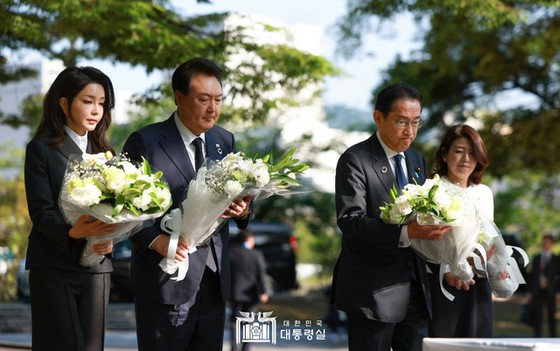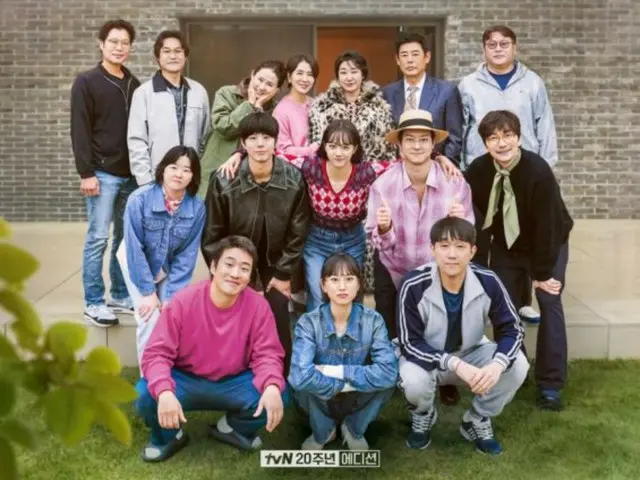 |
On the evening of the 19th, President Yoon attended a dinner party with the Korean People's Association in Japan (Mindan). I met with 10 Korean A-bomb survivors and second-generation A-bomb survivors in Japan who participated. Even after independence from colonial rule, the country's power was weak, and due to the Korean War and other factors, President Yoon said, "Even though your compatriots are suffering and suffering, the government and the nation could not stand by you. As the president who represents the government and the nation, I would like to express my deepest apologies and condolences."
Kwon Yang-baek, former chairman of the Committee for the Relocation of the Cenotaph for the Korean Atomic Bomb Victims, who attended the dinner, said, "I was exposed to the atomic bombing when I was two years old. Today, I feel like I'm dreaming. I was deeply moved. Let's move forward without questioning or being bound by the past. Let's work together to prevent a tragedy like this from ever happening again."
On the other hand, President Yoon promised to strengthen support for Korean A-bomb survivors living in Japan at the newly established Overseas Korean Affairs Agency. He added, "I would like to invite A-bomb survivors and their families, as well as people related to the Mindan and the Korean people, to South Korea in the near future. I would like you to visit your home country and see how much your country has changed and developed."
It is estimated that about 70,000 Koreans were victims of the atomic bombing, and about 30,000 were survivors. According to a survey, about 23,000 of the A-bomb survivors returned to the country, and about 7,000 remained.
Ahead of President Yoon's visit to Japan, Jeong Won-sul, chairman of the association, held a press conference on the 18th, saying, "We have lived through years of bitterness caused by the damage caused by the atomic bomb. We hope for a world without nuclear weapons." Son Duk-chan, a first-generation survivor of the atomic bombing, said, "My birthday was around 9:30 a.m. on August 6th, 1945. I was born right after the atomic bomb exploded. My mother was about to give birth as her house burned down. I was born in an air-raid shelter with no one to help me," he said, adding, "Atomic bombs must never happen again. Such pain must never be repeated."
The Hankyoreh Shimbun, which reported on the press conference, said, "Although many victims of the atomic bombing came from the Korean Peninsula, they have long been marginalized on both sides of South Korea and Japan.In Japan, the term 'Japan, the only country in the world to have suffered atomic bombings' was emphasised, while in South Korea, the issue was treated as one that had already ended with the 1965 Korea-Japan Claims Agreement", it explained. They argued that "cooperation between the South Korean and Japanese governments is necessary in order to derive substantial support measures for the victims of the atomic bombings".
President Yoon and Prime Minister Fumio Kishida visited the cenotaph for Korean atomic bomb victims in Hiroshima Peace Memorial Park on the 21st. This is the first time a South Korean president has visited the country. President Yoon held a silence for about 10 seconds after laying flowers at the memorial. In South Korea, the Yoon administration, which aims to improve relations between Japan and South Korea, has been criticized for being too Japanese-friendly. "My joy is beyond words," said Jeong, president of the Korean Atomic Bomb Victims Association.
A-bomb survivors living in South Korea also came to Japan to attend President Yoon's visit to the cenotaph, but they were unable to enter. The group prayed for the victims on a nearby sidewalk.
2023/05/22 12:59 KST


